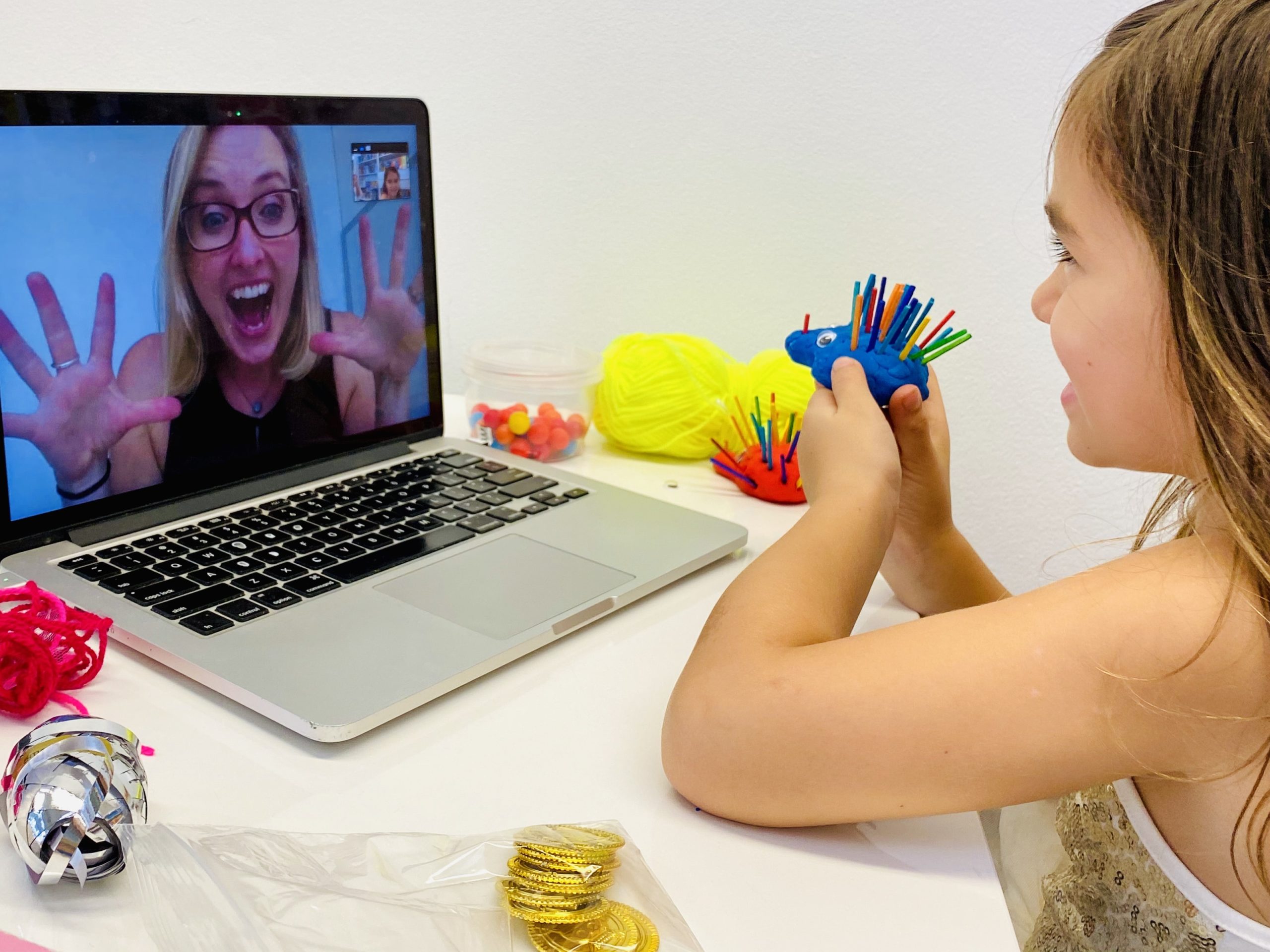
Telehealth (health consultations delivered via phone or videoconference) has been around for decades and the earliest research into its effectiveness was in the 1960’s. In Australia, psychologists have delivered mental health care via phone and videoconference for many years. This has been particularly so for people living in rural and remote areas, or those who cannot easily come into the clinic for other reasons, or simply prefer to engage in therapy consultations from home.
Since early 2020, when the world started to adapt to the COVID pandemic, we’ve seen an enormous rise in the use of telehealth as a means for providing psychological healthcare (and healthcare in general).
Some psychology practices are telehealth only and do not offer face-to-face consultations. Other clinics offer telehealth for those clients that prefer it, live far away, or for when there are government mandates in place that prevent in-clinic consultations for a period of time.
Strengths of telehealth
Simple to use and effective: In this day and age, there are excellent telehealth software platforms. Videoconference consultations are provided by software that is secure (ensuring your privacy, and in line with strict security/privacy requirements), simple to use (click the link and go), and good quality (few call dropouts and good video and audio quality).
Effective and engaging: Importantly, telehealth is effective. While we may prefer face-to-face appointments (many clinicians do too!), we have very clear research evidence that telehealth consultations are effective (in the majority of cases) and should be used where possible to continue care.
There are 100’s of clinical trials demonstrating the effectiveness of telehealth for a wide range of presenting concerns (anxiety, depression, eating disorders, chronic pain, bipolar disorder, relationship concerns, insomnia to name a few). The typical finding is that telehealth is as effective as in-clinic consultations. For example, Krzyzaniak, (2021), in a review of studies comparing telehealth to face-to-face treatment for anxiety disorders, found that telehealth was as effective as face-to-face treatment. This was the case for symptom improvement, satisfaction and the therapy relationship.
Some countries have relied on telehealth almost exclusively over the last 18 or so months. Research supports telehealth as effective both in terms of clinical effectiveness (e.g. symptom reduction, increase in quality of life) and also in terms of client satisfaction and capacity for establishing a good therapy relationship (see Haydon et al., 2021). There have been some great articles written to support clinicians in establishing a strong therapeutic relationship over video conference sessions.
Continuity of care: Another benefit of telehealth is that can reduce interruptions to your care.
You can attend sessions if you are needing to isolate due to COVID, or pressed for time to travel to the clinic. Further, if your clinician needs to isolate they will be able to provide your consultation from home. When sessions are attended in a planned manner we find that there is greater capacity to build momentum, rapport with your therapist, and optimise progress. Indeed, research supports that fewer missed sessions is associated with better outcomes in therapy (Salomonsson et al, 2019). There is also evidence that higher frequency of psychological therapy sessions (particularly in the initial stages of therapy) is associated with better outcomes (Tiemens, et al, 2019).

Of course, an additional bonus of telehealth consultations is that you get to take your mask off!
Children and Telehealth

Your clinic will discuss with you the suitability of videoconference sessions for very young children (under ~6). Many children actually prefer telehealth sessions, they are familiar with the technology and feel comfortable to be at home or other familiar environment rather than the clinic. We find that child clients are often keen to show us their favourite toys, online games, or their pet (if Mum/Dad agree). Additionally, lots of wonderful resources have been created to help make telehealth sessions, engaging, effective and fun for children. See this for just one example.
Telehealth as a part of your mental health care
Embarking in psychological healthcare in 2022 likely means being open to some of your consultations being via telehealth. COVID is asking a lot of us in terms of willingness to adapt and try new things, telehealth consultations may be another one of these.
You may have questions or concerns regarding Telehealth, and we encourage you to raise these with your clinician. Do raise concerns you may have and ask how to best make telehealth work effectively for you. Your clinician will have lots of information, tips and tricks to help you. There may be cases where telehealth is less appropriate and if this is the case you clinician will discuss this with you.
At J&R Clinical Psychology and Sleep Matters, we’re adopting a policy of converting in-clinic appointments to telehealth when our clients or clinicians are needing to isolate (but are otherwise well) due to COVID-19 mandates. We believe this is the best way to support you on your journey.
Further information
Telehealth consultations information from the Australian Psychological Society:
Tips for young people engaging in telehealth:

References
Haydon, H. M., Smith, A. C., Snoswell, C. L., Thomas, E. E., & Caffery, L. J. (2021). Addressing concerns and adapting psychological techniques for videoconsultations: a practical guide. Clinical Psychologist, 1-8.
Krzyzaniak, N., Greenwood, H., Scott, A. M., Peiris, R., Cardona, M., Clark, J., & Glasziou, P. (2021). The effectiveness of telehealth versus face-to face interventions for anxiety disorders: A systematic review and meta-analysis. Journal of telemedicine and telecare, 1357633X211053738.
Salomonsson, S., Santoft, F., Lindsäter, E., Ejeby, K., Ingvar, M., Öst, L. G., … & Hedman-Lagerlöf, E. (2020). Predictors of outcome in guided self-help cognitive behavioural therapy for common mental disorders in primary care. Cognitive behaviour therapy, 49(6), 455-474.
Blog overview
